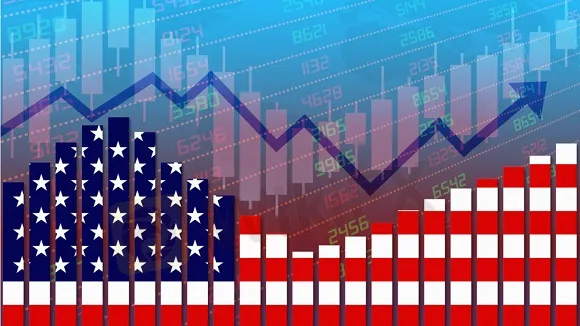简体中文
繁體中文
English
Pусский
日本語
ภาษาไทย
Tiếng Việt
Bahasa Indonesia
Español
हिन्दी
Filippiiniläinen
Français
Deutsch
Português
Türkçe
한국어
العربية
Harvard Economist Warns of Two More Years of Inflation
Abstract:Rogoff predicted, since policymakers at the Federal Reserve must balance the need to stop runaway inflation by raising interest rates while at the same time avoiding a recession, they will probably be “cautious” and will not drastically raise rates.

Harvard economist Kenneth Rogoff predicts inflation will continue into next year.
“It's not so easy to raise interest rates to fight inflation when public and private data is high, when the stock market is high, when housing prices are high, when the economy is still weak,” Rogoff told Fox Business' Maria Bartiromo. “It takes a lot of stomach.”
Rogoff predicted, since policymakers at the Federal Reserve must balance the need to stop runaway inflation by raising interest rates while at the same time avoiding a recession, they will probably be “cautious” and will not drastically raise rates. This is why “we'll still have inflation in 2023,” Rogoff said.
Inflation has skyrocketed from 1.4% to 7% since President Joe Biden took office last year, and, if Rogoff is correct in his prediction, will dominate his tenure in office.
A CBS poll released Sunday found nearly 50% of voters described themselves as “disappointed” with Biden's presidency and 40% described themselves as “nervous.” Only 25% said they were “calm” or “satisfied.”
There were 58% responding the Biden administration was not paying enough attention to the economy as a whole, and 65% said the administration was not paying enough attention to inflation.
Rogoff believes the Fed takes its 2% inflation target “seriously,” but says, “I think the question is: How much are they going to have to step on the breaks to really slow inflation down?”
For more Forex news, please download WikiFX- the Global Forex Regulatory Inquiry APP.
Disclaimer:
The views in this article only represent the author's personal views, and do not constitute investment advice on this platform. This platform does not guarantee the accuracy, completeness and timeliness of the information in the article, and will not be liable for any loss caused by the use of or reliance on the information in the article.
Read more

FED meeting minutes strongly hint at a rate cut in September; US dollar index falls to new low this year!
The U.S. Bureau of Labor Statistics revised down the employment growth in the year ending in March by 818,000, an average monthly decrease of about 68,000, the largest downward revision since 2009. The substantial downward revision of employment data re-emphasized the severity and necessity of the U.S. employment problem, paving the way for a rate hike in September. Bearish for the U.S. dollar.

What new signals does the Federal Reserve have? FED Governor Michelle Bowman reiterates the risk of inflation!
Fed Governor Bowman: There are upside risks to inflation, the labor market continues to strengthen, and a cautious attitude will be maintained at the September meeting. Boston Fed President Collins: If the data is as expected, it would be appropriate to start easing policy "soon". Inflationary pressure will slow down the pace of U.S. interest rate cuts, which will be bullish for the dollar.

GEMFOREX - weekly analysis
The week ahead: Traders on the backfoot ahead of a quiet week

Twin Scam Alert: Broker Capitals is a New Domain of Finex Stock
This week, the Italy financial regulator CONSOB issued a warning against an unlicensed broker named Broker Capitals. When we clicked on Broker Capitals' website, its logo, trade name, and design seemed familiar to us.
WikiFX Broker
Latest News
CySEC Warns Against Unauthorized Investment Firms in Cyprus
Why Even the Highly Educated Fall Victim to Investment Scams?
Warning Against Globalmarketsbull & Cryptclubmarket
Dukascopy Bank Expands Trading Account Base Currencies
UK Sets Stage for Stablecoin Regulation and Staking Exemption
Axi Bids AUD 52M to Acquire Low-Cost Broker SelfWealth, Outbidding Competitor Bell Financial
Crypto Influencer's Body Found Months After Kidnapping
STARTRADER Issues Alerts on Fake Sites and Unauthorized Apps
Italy’s CONSOB Blocks Seven Unregistered Financial Websites
Bitfinex Hacker Ilya Lichtenstein Sentenced to 5 Years in Prison
Currency Calculator


